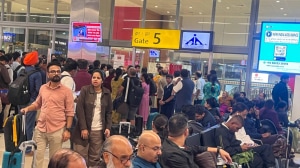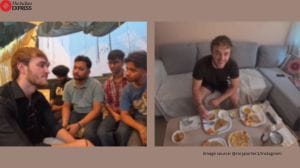‘Oral arguments allowed’: Gujarat HC quashes trial court order restricting 2016 Una flogging victim to written arguments
‘This is a significant legislative safeguard ensuring victims can actively participate in proceedings,’ the HC said
 The order was passed on September 1 by Justice Hasmukh Suthar while hearing a petition moved by Vashram Sarvaiya, complainant in the Una case reported to police on July 11, 2016.
(Source: File)
The order was passed on September 1 by Justice Hasmukh Suthar while hearing a petition moved by Vashram Sarvaiya, complainant in the Una case reported to police on July 11, 2016.
(Source: File)In a relief to the victim of the 2016 Una flogging case, the Gujarat High Court (HC) has quashed a trial court order that restricted the complainant to written arguments, holding that oral arguments could only be made through the Public Prosecutor.
The HC ruled that the right to make oral arguments for victims and their dependents is explicitly guaranteed under the Scheduled Castes and Scheduled Tribes (Prevention of Atrocities) Act, making them “active stakeholders in criminal proceedings”.
The order was passed on September 1 by Justice Hasmukh Suthar while hearing a petition moved by Vashram Sarvaiya, complainant in the Una case reported to police on July 11, 2016.
Sarvaiya and six family members were allegedly attacked by self-styled cow vigilantes for allegedly skinning a dead cow on the outskirts of their village, Mota Samadhiyala. They were allegedly abducted, confined in a car, paraded through Una town, tied with ropes, and publicly flogged. Purported videos of the incident triggered massive protests against atrocities on Dalits in Gujarat.
Vashram had lodged a complaint at Una police station against six persons, following which a chargesheet was filed before a Sessions Court in Una. The case was later transferred to a Sessions Court in Veraval.
During trial, on June 10, 2024, the complainant’s lawyer Govind Parmar filed written submissions running into 126 pages to assist the court in evaluating the documentary and oral evidence. While the trial court permitted oral submissions initially, on September 21, 2024, it rejected an application to adjourn proceedings for oral arguments, holding instead that complainants could submit written arguments but oral submissions could be made only by the Public Prosecutor.
Challenging this, Sarvaiya approached the HC through advocate Megha Jani, arguing the order was “contrary to the provisions and objects” of the Atrocity Act.
Quashing the trial court’s order, Justice Suthar observed: “Section 15A of the SC/ST Act contains important provisions that safeguard the rights of the victims of caste-based atrocities and witnesses. Sub-sections (3) and (5) specifically make the victim or their dependent an active stakeholder in the criminal proceedings. These provisions enable a member of the marginalized caste to effectively pursue a case and counteract the effects of defective investigations.”
The HC further noted: “Under the SC/ST Act, the right to make oral arguments for victims and their dependents is explicitly guaranteed and protected under Section 15A. This is a significant legislative safeguard ensuring victims can actively participate in proceedings. Section 15A is broader than the limited role under Section 302 of the CrPC. Victims are entitled to full participation, not just assisting the prosecution.”
A total of 40 accused — including two policemen — are facing trial in the case, booked under IPC provisions and the Atrocity Act for attempt to murder, criminal intimidation, conspiracy, wrongful confinement, forgery, assault on a woman with intent to outrage her modesty, among others. All accused are currently out on bail.







